

Beyond February:
an opinion piece
The goal of Black History Month at its inception was to make Black History Month obsolete. And I hope at some point we stop celebrating Black History Month. This opinion may surprise you but I mean it. Let me tell you why.
While designating a specific month to celebrate Black history has value, solely relying on this framework presents a crucial limitation. True progress lies in embedding the acknowledgment and celebration of Black people’s history and accomplishments within our curriculums and daily lives, year-round.
Firstly, limiting Black history to February risks relegating it to the periphery of our collective consciousness. It inadvertently suggests that the contributions and stories of Black individuals are confined to a specific period, neglecting the ongoing impact they have had and continue to have on society. By integrating Black history throughout the year, we ensure a more nuanced and holistic understanding, allowing our experiences and achievements to become an intrinsic part of our learning and reflection.
Secondly, a year-round approach allows for a deeper exploration of Black history. Confining it to a month often leads to a surface-level skimming of significant events and figures. When Black History Month rolls around we’re inundated with stories of Martin Luther King, Rosa Parks, the Civil Rights Movement, and maybe Malcolm X. It’s always the same people and the same stories, year after year. That’s incredibly boring. By incorporating Black history and stories
AC’s African American Read-In
The African American Read-In is a nationwide celebration that takes place in February, during Black History Month. The event brings communities together to honor and recognize African American literature and literacy. Dr. Vincent Bissonette initiated Allendale Columbia’s own African American Read-In in 2021. “[The African American Read-In] makes an important public statement. Many of the texts we hear at this event — and many of the Black people who wrote them — have been historically marginalized. But these texts are so important. Every student from Lower School to Upper School, every faculty or staff member who participates in this event is affirming the value and importance of these texts by reading and hearing them in the Dining Commons, the literal and symbolic center of Allendale Columbia.” In centering African American authors and their works, the event fosters environments where their voices can be uplifted and appreciated.
AC Alum, Harmony Palmer, describes the event as “a very good celebration of black artistry and creativity, [and] recognition of race and difference.” Whether it be sharing readings from African American writers or simply listening to others share, the African American Read-In illuminates the impacts of literature in shaping cultural identity and understanding. Indy Maring states “I believe it adds value to our campus by having students and faculty engage with their favorite Black authors and poets and sharing them with the larger community.” In addition to recognizing black authors, the event may resonate with many students. As Dr. Bissonette reflects, “I love that this event invites students to select texts that are meaningful to them and share them. It’s a very simple idea and a very powerful one.” Our event took place in the dining commons on Thursday, February 29 at 9:05.
History of African American Read-ins
ANGELICA DAVIS-BERNARDThis year I experienced my first African American Read-In. This was not a tradition at my previous institutions. The beauty of the African American Read-In is the exposure to the literature, artistry, poems, and expressions of Blackness. This intentional expression of Blackness should be lifted more often where there is an intentional embedding in the curriculum. I see beauty in the possibilities of AC and schools alike in raising our critical consciousness and honoring Black people beyond Black History Month. Exploring Black history, leaders, and events (such as the Tulsa massacre) is American history that goes beyond 28 days or 29 days in a leap year. Researching organizations like the Black Literacy Societies was fulfilling where I was full of pride, joy, anger, and sadness.
These emotions settled in simultaneously as I learned that as early as the late 1790s and throughout the 1800s, the main goal among Black Americans in the North was to improve and elevate the condition of people of African descent through literary means. The history of AfricanAmerican literary societies when freed Black people organized collectively to plan action for the abolitionist (anti-slavery) movement. Furthermore, members in these
BEYOND FEBURARY: AN OPINION PIECE
Continued from page 1
throughout the curriculum, we enable a more comprehensive and detailed examination, fostering a richer understanding of the complexities and multifaceted narratives within Black history.
Furthermore, continuous engagement fosters a sense of inclusivity and belonging. When Black history and achievements are woven into the fabric of our daily lives, Black individuals feel seen, valued, and acknowledged throughout the year, not just during a designated month. This fosters a more equitable and inclusive environment for all.
Finally, year-round acknowledgment and celebration promote critical thinking and dialogue. By engaging with Black history beyond February, we encourage conversations about ongoing issues of racial injustice and inequity. This continual engagement fosters the necessary critical thinking skills to actively dismantle these structures and build a more just and equitable society.
In conclusion, while Black History Month serves a purpose in raising awareness, it shouldn’t be the sole platform for acknowledging and celebrating the profound contributions of Black people. Embedding these narratives throughout the year fosters a deeper understanding, fosters inclusivity, and promotes critical reflection – ultimately paving the path towards a more equitable and just future. Only then can we move beyond the need for a designated month and truly celebrate the richness of Black history throughout our lives.
THE HOWLER
societies met regularly in basements of churches, buildings with classrooms, libraries, private homes, and auditoriums for events, such as public addresses or debates that drew large crowds (McHenry, 1995). There were many variations among these societies ranging from large and small to gender-specific and unisex. Within these groups, Black Americans of different ages would gather around texts they identified as meaningful and significant to encourage and improve reading, writing, and speaking skills, share knowledge, promote ideas, and cultivate a scholarly and literate way of life (McHenry, 1995).
These societies were found in cities like Philadelphia, Boston, and others. The earlier societies were for men only. Subsequently, Black American women created their literary societies. For example, the ultimate goal of the Female Literary Association, FLA, was to provide a space in which the connection between intellectual growth along the political and social well-being of Black Americans could be facilitated. Mutual support was cultivated among FLA members along with a sense of community and a space to debate and educate themselves on important political and social matters (McHenry, 1995). I was overjoyed to learn about these beautiful, ambitious, and inspiring societies.
I was reminded that Black Americans living in enslavement were punished if they were caught reading or carrying a book. The enslavers, including presidents, and the Founding Fathers, perceived reading as a means of liberation. During chattel slavery, Black enslaved people were identified as property with limited to no access to liberating resources, such as abolitionists’ published essays (tracts). I was filled with anger and sadness. Enslavers wanted to own and control the bodies and minds of Black enslaved people. Black literacy
RIT’s Expressions of King’s Legacy event
LANAE VARGASOn January 20th, along with a few other students from AC, I attended RIT’s Expressions of King’s Legacy event. The event was a wonderful experience. From its opening, the new version of “Lift Every Voice and Sing”, to the speaker
exposing his own biases and flaws. The speaker and author Ibram X. Kendi talked about all his biases and how he perceived them to be normal at a young age. He explained how he thought there was nothing wrong with them and they were right at the time. He then learned they weren’t actually correct and that inspired him to write. The summit really made me sit and think about the stereotypes and biased thoughts that
is one of our most powerful weapons against oppression and injustice today and in our history (Toldson, 2024). “Our freedom lies in our ability to communicate not only the harms and trauma we have endured, but also the joys of our survival, perseverance, and resistance. Holding collaborative and community spaces to share our stories, in our way, in our words is a requirement for liberation, especially if we are seeking revolutionary and sustainable change” (Toldson, 2024). Southern states prohibited socializing in even small numbers but freed Northern societies enjoyed the much-needed opportunities to socialize, read the latest abolitionist publications/essays, and exchange news of their oppressed brethren living below the Mason-Dixon line. Books and reading were essential ingredients in the fight to uplift the race and abolish this form of enslavement. (The next iterations were imprisonment/13th amendment loophole, Jim Crow, and mass incarceration).
Literary societies empowered and dismissed the limitations and notions regarding Black peoples’ intellect and capabilities. We can see the legacy of those same beliefs of limitations embodied in stereotypes and prejudices today. I believe there is a beautiful possibility to lift Black literature, artistry, music, and culture beyond the identified heritage month. This is a call for self-reflection and activism to fight for and to pursue justice and liberty for all as all people are created equal.
WORKS CITED
McHenry, Elizabeth. 1996. “Dreaded eloquence”: The origins and rise of African American literary societies and libraries. Harvard Library Bulletin 6 (2), Summer 1995: 32-56. Accessed at http:// nrs.harvard.edu/urn-3:HUL.InstRepos:42665394
Muhammad, G. https://www.jstor.org/stable/24759714
Toldson, I. (2024). From Abolitionist Shelves to Banned Books: Black Reading is Revolutionary, Black Literacy Programs Should be Too. accessed from Linked In.
I had. They were quite similar to him in a way. To hear his story of how his book Stamped was banned made me think about how the world tries to pull you away from the things you most need sometimes. I think he should return and host another summit. I would love to participate in another one of these events. His story is very inspiring and needs to be heard.
THE HOWLER ASTRONOMY
Looking to the skies is an interesting and engaging past-time that many of our faculty participate in. Here Kexin Cai interviews some of our astronomy enthusiasts Crissy Colson and Danny Robb.
What specific topics or aspects of astronomy do you find most engaging for you? Can you introduce it to us simply?
Colson: What I love about astronomy is the extremes it takes us to! I like finding where the laws of physics break down, and seeing what we can learn from that
Robb: There are different types of objects that interest astronomers. Outside our solar system, there are other stars, nebulae, and galaxies. Within our solar system, there are planets, moons, asteroids, and comets. Amateur astronomers can look at both types of objects through even fairly small telescopes, but people are usually drawn to one or the other. I love observing both, but I’m particularly drawn to objects in our solar system--our celestial neighbors. I like looking at moons and planets, which move through the sky over the course of the year and change their appearance. My favorites are the moons of Jupiter and Saturn. Each is its own little world. They’re also some of the few objects that move visibly on short timescales--you can see their position relative to their planet change within minutes or hours. Sometimes you can even catch an eclipse on another planet!
Can you share your most memorable personal experience with astronomy? Or what sparked your interest in astronomy?
Colson: I had a research fellowship in astrophysics when I was in college, and I got to do a lot of work at an observatory. Looking up at the sky at three in the morning to see the arms of the Milky Way is an unforgettable experience.
Robb: I’ve always been interested in space and science fiction. Like a lot of people, I think the first time I really got interested in astronomy in particular was the first time I looked through
a telescope at our Moon and the rings of Saturn. For me, that wasn’t actually until college, when I took an astronomy course. The first time you see the craters and mountains of the Moon in detail--or see that the rings of Saturn are really out there, and you can look at them yourself-these are magical moments.
After you catch the bug, you start seeking dark skies, away from light pollution. In these special places, the light from astronomical objects has an easier time reaching your telescope, and you can see a lot more detail. Objects that were invisible before become visible. The darkest sky I’ve ever been to was Goosenecks State Park, on the border between Arizona and Utah. I camped there with my telescope one summer and spent all night finding different objects. The sky there was absolutely mind-blowing, completely filled with stars.

For many people, astronomy seems out of reach for us. Can you share some instances where astronomy and reality have a connection or impact? And how do they work?
Robb: Amateur astronomy is one of the most accessible hobbies, and might even be one of the oldest human activities. All you need to do is step outside on a clear night and look up. You can start to learn constellations, track the motion of the sky over time, and find planets or other objects visible to the naked eye. Historically, knowing about these motions had a deep practical impact. They were how people kept track of the seasons and knew when to plant their crops or move their herds. Knowing this stuff was a matter of life or death.
A cheap pair of binoculars can reveal other
objects and enrich the experience. A cheap telescope starts getting you access to relatively detailed views of the Moon, the planets, galaxies, and nebulae.
Understanding other planets has played an important role in understanding our own. Figuring out the deep histories of how stars form gives us insight into objects within our own solar system. Understanding the nature of galaxies has helped us understand our place in the universe. Astronomy has given us insights into climate change, but also philosophical insights that have intangible value. Over time, seemingly abstract knowledge often ends up having real practical value. Within our solar system, there are even companies who want to use geological knowledge of the Moon and asteroids to try mining them for resources.
An eclipse is predicted for April this year, are you looking forward to it and will you do something about it? Can you tell us a little bit about eclipses?
Colson: This eclipse is when the moon goes in front of the sun. We actually live at an amazing time in our solar system. Right now, the moon is the same size in the sky as our sun. This has not always been true, and it will not always be. In about 600 million years, the moon will no longer be able to fully block out the sun!
Robb: I’m very much looking forward to the eclipse. I was lucky enough to see the eclipse in 2017, and it was the most awe-inspiring experience of my life. It’s very difficult to describe what it is like. It isn’t just the sun getting blocked out by the Moon. The sky grows darker, and stars start to appear. Birds and bugs react in strange ways, so the sounds around you completely change as well. It’s a surreal experience that goes beyond the visual spectacle.
During totality, you can take off your eclipse glasses (Not before! Set a timer!). When you do, you can see solar material in the corona, which often takes on strange and beautiful patterns. The view you get in every eclipse is completely unique.
In 2017, I ended up traveling to a place on the path of totality where I thought there was the greatest chance of clear skies. But some of the effects should happen even with cloudy skies. It might get even darker than it would otherwise.
Also before totality, make sure to take a look at the shadows of tree branches.
Applying for Scholarships: Tips and Tricks
JAMES THORNBURGI applied for 50 scholarships this year. One by mail, thirty-five on various scholarship websites, three by online portal, and eleven by email. I have written essays that get in under the wire and written about my career goals more times than I can count. Today I will share a couple of tips and pointers about applying for scholarships.
APPLY BROADLY
If you meet the criteria to apply you should apply. Even if the standards seem too lofty for you to have a chance of winning you should apply. Every year $100 million in scholarship money and around $2 billion in student grants go unclaimed. The money is often not awarded due to a lack of applicants. If you meet the eligibility requirements for a scholarship you should apply.
APPLY SPECIFICALLY
In your eleventh-grade year, you will most likely take the junior college workshop. Within that mayterm, you will be asked to construct an academic resume. The academic resume you create will give colleges a snapshot of your accomplishments, extracurriculars, hobbies, and work history. Using your academic resume as well as your demographic information (your race, sex, gender, economic status, and whether or not you are a first-generation student), you can search for scholarships that are specific to your achievements and demographics.
Filtering by achievements and demographics allows you to have a better chance of winning a scholarship, as there is now a smaller pool of people who qualify for that scholarship and of applicants.
Beyond that applying specifically can allow you to write a better essay as it will be a topic you are interested in
REUSE YOUR WRITING
Many scholarships will ask you to examine your values, describe your career goals, or write about your proudest achievement. The repetition of questions like these allows you to reuse essays. However, you must make sure to adapt your essay for each scholarship, otherwise, the essay might feel too broad and vague for the scholarship.
START EARLY
Many scholarships require recommendations, mail-in requirements, time-intensive forms, and even tax forms. While some of these things can be done spur of the moment, recommendations, and mailing requirements are a tad more timeintensive, and may require outside help. Inform people you want recommendations from at least a month in advance and check back in with those people periodically.
Additionally starting writing prompts early allows extra time for editing, grammar checks, and revisions.
FINAL THOUGHTS
Applying for scholarships is a time-consuming and deadline-oriented process that can feel stressful. But if you use the tricks mentioned in this article you can save yourself work and hopefully some money.
NEW BOOKS by Black authors IN OUR LIBRARY
Some new books in the library that you may want to check out about Black History Month are:
On the Come Up
Author: Angie Thomas
Genre: Realistic Fiction-”Coming of Age”
Published: 2019
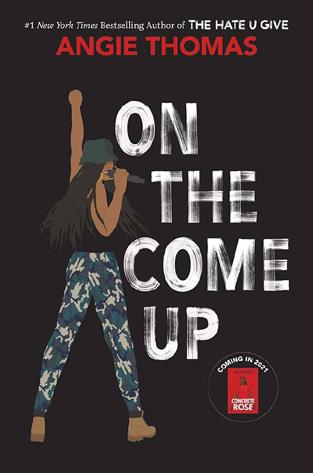
Angie Thomas strikes again with her fictional account of Bri, a sixteen year old girl who wants to become the “greatest rapper of all time.” However, times are tough for Bri and her family, and just as her star rises, the media begins portraying her as a villain. Faced with all this pressure, Bri has to decide whether to succumb to the media’s perception or push back.
Underground Railroad
Author: Colson Whitehead
Genre: Historical Fiction
Published: 2016
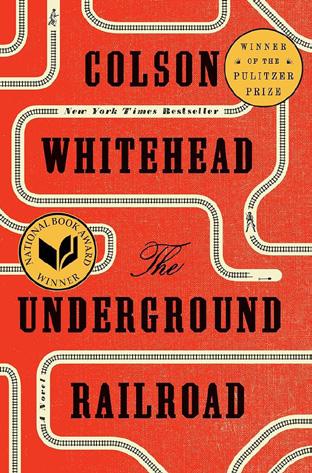
This is an older book, but it is still a good one. Whitehead chronicles the life of Cora, an enslaved woman, living and working on a cotton plantation in Georgia. Once she learns about the Underground Railroad, she is determined to
Continued from page 4
escape. Whitehead reimagines the Underground Railroad as a true operating railway under the southern soil. Throughout her journey, Cora lives through and witnesses additional horrors of the pre-civil war south. Whitehead seamlessly intertwines American history with the fictional accounts of Cora and those she encounters on her journey to freedom.
Nigeria Jones
Author: Ibi Zoboi
Genre: Realistic Fiction-”Coming-of-Age”
Published: 2023

As a National Book Award Finalist and Winner of the Coretta Scott King, Ibi Zoboi flawlessly creates a story about discovering your true self. Nigeria is a homeschooled sixteen year old and an active member of a Black separatist group along with her parents. Once tragedy hits her family, Nigeria begins to uncover family secrets. Rocked from these revelations, Nigeria begins to question all that she’s been taught.
JAMES’ PICK
On the Other Side of Freedom
Author: DeRay Mckesson
Genre: Biography
Published: 2018
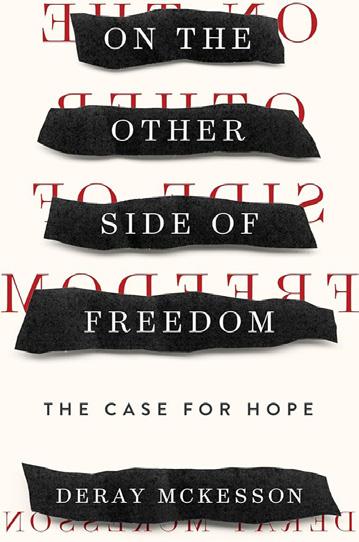
THE HOWLER BAKING BONANZA BSU bake sale
On January 31st the Black Student Union (BSU) the BSU had its third annual bake sale. While the club made many baked goods, many people donated baked goods. According to Mx. Oliveri, the brownies were “chefs kiss,they were standin[g] on business.” Other students had similar remarks about the quality of the baked goods.
Overall the bake sale raised $500 for clubrun activities such as their annual movie night and their upcoming 3rd Annual Black Student Alliance conference.
Kindergarten
Bake Sale
On February 9th the Kindergarten hosted its annual Bake Sale! Every year some of the tiniest members of our community make their favorite treats to share with the AC community and support a non-profit of their choice. This year the money raised will be split between three animal rescue organizations: RocKats, Begin Again Horse Rescue, and Wild Wings. These organizations help out cats, horses, and birds respectively.
The bakesale gave the kindergartners a chance to give back to their community as well as collaborate to learn skills in business and planning.


Mx. Oliveri’s BSU bake sale cookie recipe
INGREDIENTS
2 ¼ cups all-purpose flour
1 tsp salt
1 tsp baking soda
1 cup brown sugar firmly packed
½ cup granulated sugar
1 cup softened butter
1 tsp vanilla
2 eggs
1/3 cup white chocolate chips
1/3 cup semi-sweet chocolate chips
1/3 cup caramel chips
INSTRUCTIONS
1. Preheat oven to 350 degrees F
2. Combine brown sugar, sugar, butter, and vanilla in a bowl (stand mixer preferred) and beat until creamy
3. Add eggs and beat
4. Add flour, salt, and baking soda, and mix well
5. Add chips
6. Drop mixture using a cookie scoop onto a tray lined with parchment
7. Bake 10-12 minutes until no longer wet on top
8. Let cool on a cooling rack and sprinkle with a small pinch of pink sea salt
Yields about 2 dozen cookies

1. Surname of the person who wrote Roots
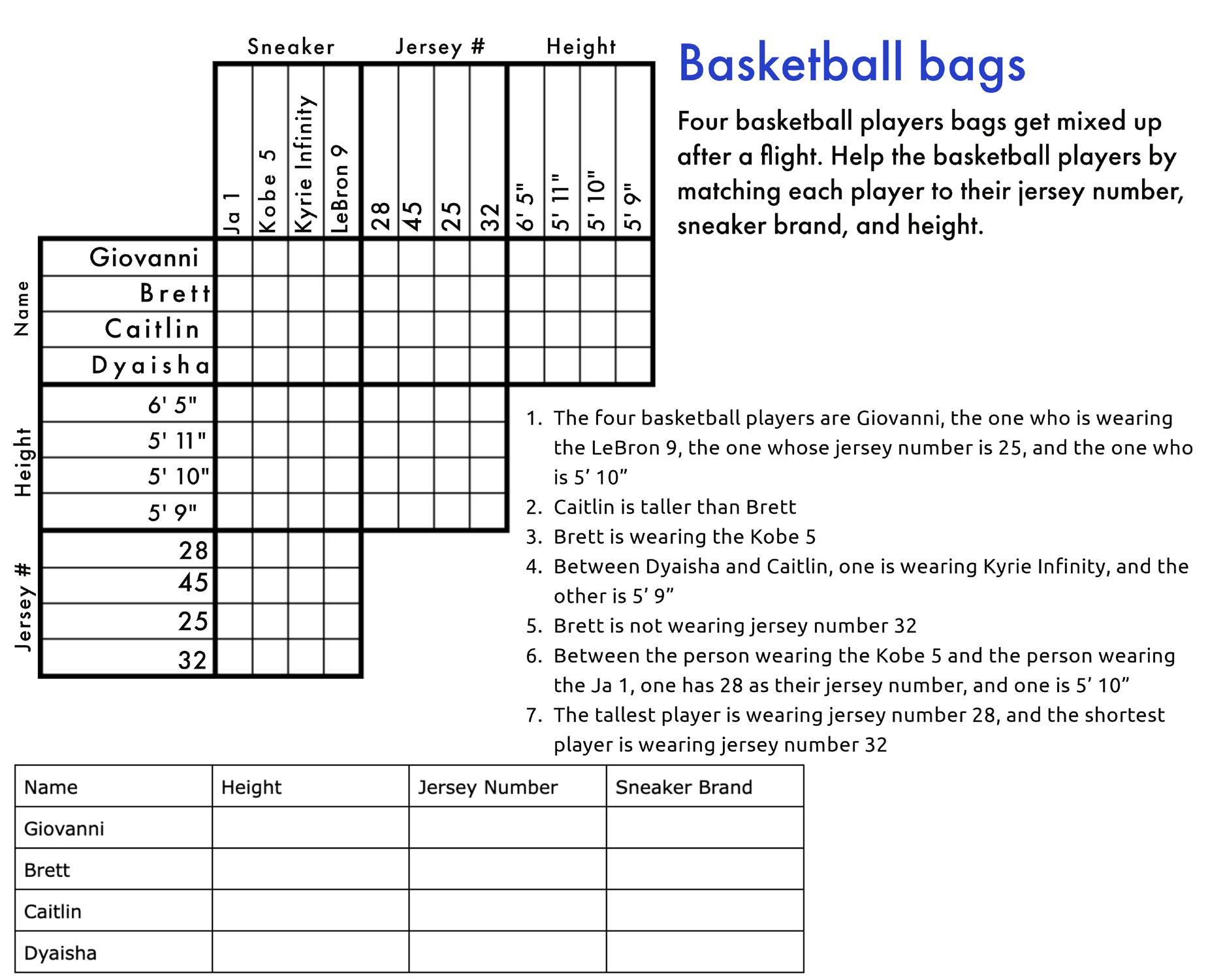
DOWN
1. Birth city of Dr. Martin Luther King
2. Name of the NASA shuttle Mae C. Jemison (the first African American woman in space) traveled in\
3. Hugs and kisses
5. The idea of compensating African Americans for the historical injustices of slavery and systemic racism
15. Last name of the woman who set a record for most medals in gymnastics at a single Olympic Games
16. ___ to Montgomery marches. A site of intense brutality toward marchers.
6. A renaissance occurred in 1920 that showcased the achievements of African American writers, artists, and musicians occurred in what location?
7. ______ Arimen. The first African American military aviators
10. Last name of a professional Japanese and Black tennis player
12. Princess in Princess and the Frog
13. The Civil Rights ___ of 1964 (with an s added)
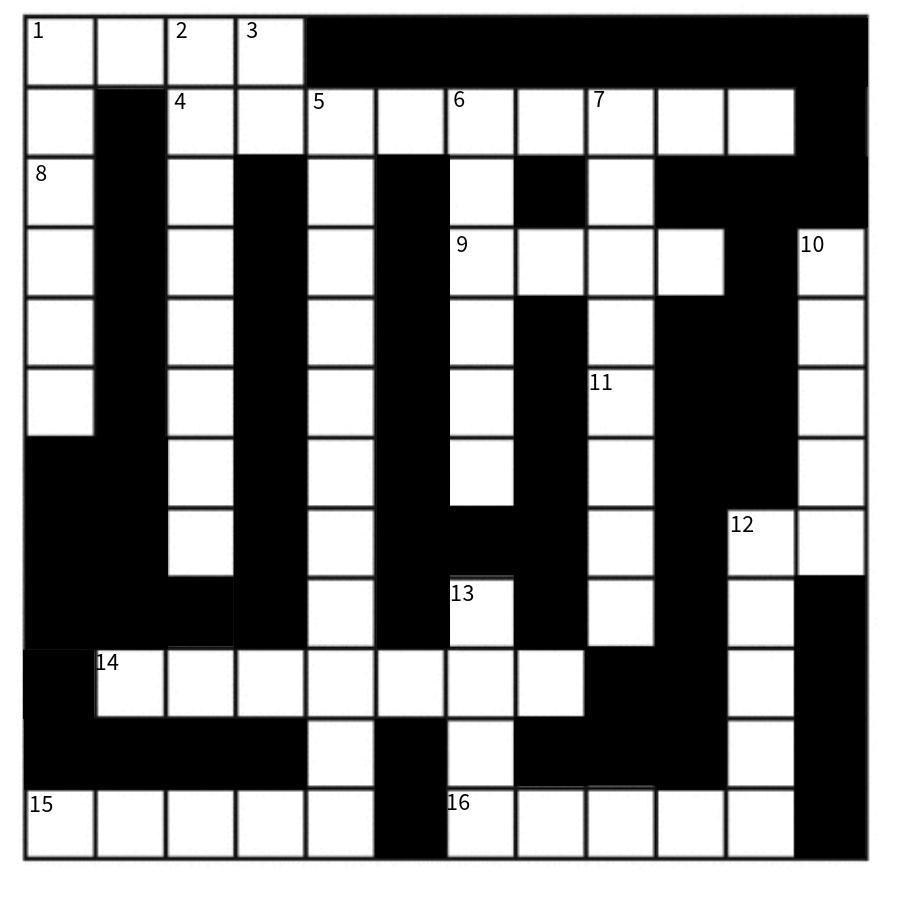
BAM!
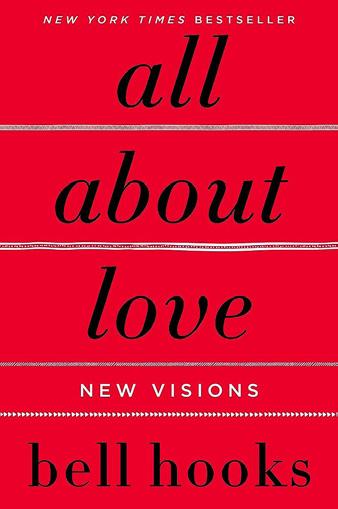
Book: All about love
BELL HOOKS
GENRE: CREATIVE NONFICTION
RATING: 5/5
For months, people have been recommending bell hooks to me. I see quotes by them all over my Instagram feed. I finally bought the audiobook and started listening because honestly finding time to sit down and read a book is hard. bell hooks’ message is simple: Love is a revolution. Love heals ourselves, our children, our communities, and our partnerships.
“We fear that evaluating our needs and then carefully choosing partners will reveal that there is no one for us to love. Most of us prefer to have a partner who is lacking than no partner at all. What becomes apparent is that we may be more interested in finding a partner than in knowing love.”
- Bell Hooks, All About Love: New Visions
What I garnered from this book is that the way we put out love into the world is not solely about romantic relationships. Our platonic friendships are a form of love. The way we care about our friends and family is a form of love. The way we put love into our communities whether they are cities, schools, or workplaces is just as valuable and important. hooks talks specifically about the way we create love in our homes by buying ourselves flowers or decorating our homes in a way that makes us feel love. I believe that we are taught as young children to idealize the love we receive from a romantic partner when in fact we can feel love from ourselves and so many other people, places, and things in our lives. AMY OLIVERI
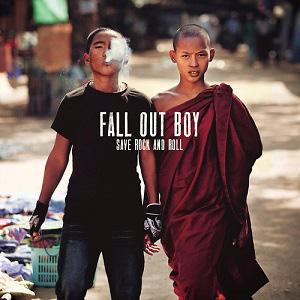
AlbuM: Save Rock and Roll
FALLOUT BOY
GENRE: POP ROCK
RATING: 5/5
While Fallout Boy ditches the long song titles in this album (except for notably “My Songs Know What You Did In The Dark (Light Em Up), which is almost its own sentence) the band still keeps the great songwriting and vocals that made them popular. The album features 11 tracks, all of which feel high energy and some that feature guest artists (most notably Elton John). While some of these collaborations fall flat or fail to work well, with Fallout Boy’s sound it’s great to see them have fun.
One of my favorite pieces of this album is the order of three particular songs. The sixth track of this album is “The Mighty Fall,” followed by “Miss Missing You,” then followed by “Death Valley.” The most interesting thing about this order is that “The Mighty Fall” and “Death Valley” both feel like love songs but in almost opposite directions, while “Miss Missing You” feels distinctly like a breakup song.
With “The Mighty Fall”, adoration practically seeps into the very notes of the song. However “Death Valley” feels like a more animalistic love song, free of sappy emotions. In contrast with both of those songs, “Miss Missing You” serve as a breakup song that reminds all of us how beautiful and almost oppressive loving someone is. With lines like, “Your hot whisky eyes/ Have fanned the flames/ Maybe I’ll burn a little brighter tonight” and “So give me your filth/ Make it rough/ Let me, let me trash your love” there are both a beauty and a disgust are present in this song.
With “The Mighty Fall,” “Miss Missing You,” and “Death Valley” Fallout Boy reminds us that love is both beautiful as well as an animalistic chemical reaction. There is love in “The Mighty Fall” and animalistic desire in “Death Valley,” which come together in “Miss Missing You” to create the ultimate homage to love.
JAMES THORNBURG
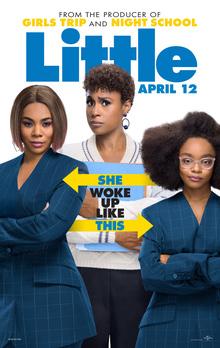
Movie:- Little
GENRE: COMEDY RATING: 3/5
The movie “Little” directed by Tina Gordan is a comedy film about a bossy woman in the corporate world who turns into her 13-year-old self and slowly throughout the film becomes a better person. It was very cool to watch her transformation as she goes back to school, meets new kids, tries to make them over, and even performs in front of the whole school at some point. Eventually, she realizes it’s okay to have fun, make mistakes, and not be all about work.
MACKENZIE OPIRA
THE HOWLER

INSIDE THE DEN

In Celebration of Season
Wolves Cut Net
On the 12th of February, the Boys Varsity Basketball team closed the regular season of basketball with an impressive 16-3, placing them in competition to go to sectionals. In celebration, each member of the team took home a piece of the net.
The tradition of cutting down the net first started in Indiana high school basketball in the 1920s and 1920s. Eventually, in the late 1940s, the tradition moved into men’s college basketball, when the North Carolina State Wolfpack won the Southern Conference Championship. After the tournament win the Wolfpacks coach, Everett Case, had each of his players cut down a piece of the net as a souvenir. Case had previously coached in Indiana, where he had cut down the nets on other occasions.
The trend continues to this day in college and high school basketball. Even creating enough stir that Werner co-designed a ladder just for net cutting that has been used in the post-game net-cutting ceremonies for Divisions I, II, and III men’s and women’s basketball championships.
Unified Basketball: A fun spring sport
Have you ever heard of Unified Basketball? Unified Basketball is a fun and engaging sport that can be done by anyone of any athletic ability or basketball skill. The sport focuses on bringing players without intellectual developmental disabilities and those with intellectual developmental disabilities (as well as other impairments) together, creating deep interpersonal bonds.
The season is short, only running about one month, with only about three practices a week, as well as a couple of games. Try it out this year for a fun, relaxed sporting experience!
Indoor Track is Terrific
The indoor track team recently won the Section V Indoor A5 Track and Field Championship as well as the Sectionals. All individual winners went on to compete at Nazareth in State Qualifiers. Here are some highlights:
- Ollie came within 4 hundredths of a second from going to the state meet, finishing 5th in the 1600m with a season’s best 4:28.4.
- Charlie was 4th in the 1500m race walk with a time of 8:26.4 - HAC’s highest placing of the meet.
- Chris was 6th in the 300m, notching a new PR in 36.29 seconds. He also met the state standard in a loaded 55m dash field.
- Evelyn took 7th in the 3000m in 11:16.
- Katie set a PR in the 1000m in 3:20.9 and equaled her PR of 4-10 in the high jump.
- The girls’ 4x400m relay team (Jess, Katherine, Robin, Katie) set a new school record of 4:30.8
Great job to the entire indoor track team!


Distinguished Divers and Superb Swimmers
Kiran is, once again, a Section V Diving Champion. Winning with an impressive score of 484.85, Kiran will move on to represent Section V at the New York State Tournament in late February. Additionally, Kiran’s brother placed 2nd on the podium with a personal-best score of 418.60.
In the swimming space, there are several accomplishments to celebrate. On the 15th the Section V Class D Championships, here are some accomplishments from that day to celebrate. Dylan M. is now a Class D 200-freestyle champion. For a double whammy, Steven K. placed 2nd overall in the 200-meter individual medley as well as winning the 100yard breaststroke. Additionally, the 4x200 freestyle relay team placed 2nd overall.
Congratulations to everyone who placed as well as everyone on the team for a fantastic season!

